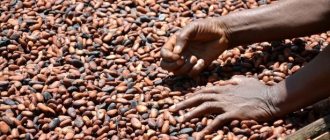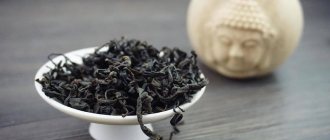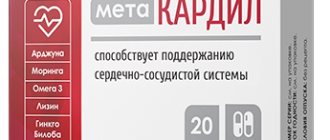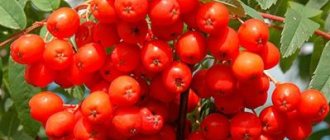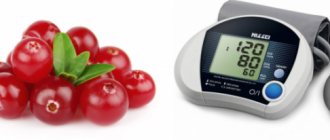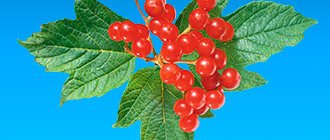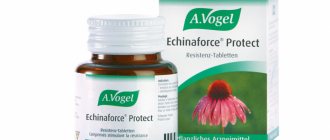Scientists from the University of Delaware conducted an experiment to find out which foods increase blood pressure. To do this, they selected more than 100 elderly people and studied their diet.
It turned out that when eating foods rich in sugars, the pressure during heart contractions increases. This effect of glucose is especially noticeable in women, according to the published study.
On the other hand, eating fruit lowers blood pressure in both women and men. If you eat them in the amount of one cup per day, you can normalize the condition, Food News reports.
Is there a relationship?
It is worth noting that there is still a relationship between blood pressure and sugar. However, not all doctors can unequivocally answer at what point a violation of carbohydrate metabolism is observed in the human body. For example, for quite a long time in Russia the normal indicator was 6, and in the United States - 5.7.
Any foods high in fat and carbohydrates increase blood pressure. This is due to increased stress on the stomach. It is worth noting that foods containing sugar can be dangerous in the long term. The fact is that excessive consumption of sweets causes a slowdown in metabolism and obesity, which can lead to diabetes. Thus, all these pathologies are accompanied by increased blood pressure.
In addition, sugar negatively affects the functioning of the hypothalamus in the human brain. As a result, the load on the heart muscle increases. The heart rate increases and the blood pressure rises. Thus, sugar is not a healthy product, since it is what causes a number of serious diseases of both the cardiovascular system and the body as a whole.
Harm from eating sugar
Nutritionists recommend that healthy people limit their sugar intake: no more than 25-30 grams per day. But, according to statistics, the average rate of its consumption in Russia is 107 grams, in the USA – 160 grams.
The sweet life brings bitter consequences:
- obesity - with each spoon of white crystals we get 20-30 calories, which turn into fat deposits, weight increases, it becomes harder to move, and the disease develops;
- diabetes;
- decreased immunity;
- atherosclerosis;
- damage to the walls of blood vessels;
- decreased strength of bone tissue;
- the proliferation of microorganisms in the mouth that destroy tooth enamel.
When breaking down and eliminating sweets, the stomach, liver, kidneys, and pancreas experience increased stress, which provokes malfunctions in their work and the development of diseases of the endocrine, digestive and excretory systems.
Sweets for hypotension
Sugar-containing foods increase blood pressure by putting more strain on the digestive system. Carbohydrates are quickly absorbed in the body and, as a result, contribute to an increase in glucose levels. Thus, as a result, there is an increase in vascular tone, as well as a slight jump in blood pressure.
If you have hypotension, eating sweets can raise your blood pressure, improve your well-being and performance. Moreover, food with sugar awakens the nervous system, which in some way is even useful for hypotension.
To eliminate the symptoms of a hypotensive crisis, accompanied by a sharp drop in pressure, dizziness or fainting, experts (including Elena Malysheva) recommend increasing the glucose level in the blood, i.e. eat a few pieces of chocolate to improve your well-being. People suffering from hypotensive diseases also benefit from a cup of strong, sweet tea or coffee.
Sugar causes your blood pressure to skyrocket. Blood circulation improves. Oxygen enters the brain more intensely. And the symptoms of hypotension disappear. Despite the immediate effect of glucose, it is not recommended to abuse sweets. For hypotensive people, sugar actually makes them feel better. However, with frequent use, metabolic processes may be disrupted in the future and atherosclerosis may develop.
And also read on our website: How does white wine affect blood pressure? Does it increase or decrease levels?
Which sugar is the most dangerous? Fructose!
Fructose is present in a huge number of food products, even in those considered absolutely healthy, such as honey, fruit juice, and dried fruits.
It is precisely the effect of fructose on the liver that is similar to the effect of alcohol on it. And the main harm of sweets to the body is the harm that comes from fructose.
Unlike glucose, which is used by all cells in the body, fructose is metabolized only by the liver. And if too much fructose enters the body, it damages the liver in the same way that alcohol damages it. And just like alcohol, fructose is converted by the liver into fat, and not into energy, like glucose.
Dr. Robert Lustig calls fructose a “chronic, dose-dependent liver toxin.” And it's clear why.
- Both alcohol and fructose become substrates in the liver for converting all dietary carbohydrates into fats. This leads to the development of insulin resistance, dyslipidemia (abnormally high levels of fats in the blood) and fatty liver disease.
- In the liver, fructose undergoes a Maillard reaction with amino acids. This results in the formation of superoxide free radicals, which cause liver inflammation similar to that caused by alcohol products.
Safe sweets for hypertensive patients
It is worth noting that not all foods containing sugar are detrimental to the health of hypertensive patients. Despite the fact that due to hypertension a person is forced to limit his diet, this does not mean that he should give up completely all sweet foods. There are sugar-containing products that are useful for hypertension:
- honey;
- dried fruits;
- berries;
- chocolate.
It is these products that contain substances that have a positive effect on the cardiovascular system. However, they bring his blood pressure back to normal. Therefore, it is recommended to introduce them into your diet.
Chocolate
If you have high blood pressure, it is sometimes helpful to eat a piece of chocolate. As a result of research conducted in 2016, over 600 substances were discovered in chocolate that help improve vascular elasticity, as well as protect the heart from abnormal physical activity.
Moderate consumption of chocolate will help normalize blood pressure. In addition, it helps improve mood and fight stress.
So, for hypertension, it is recommended to consume 3-4 pieces of dark chocolate no more than 2 times a week. It is worth noting that a person suffering from hypertension can also eat candy bars, as well as drink cocoa and hot chocolate.
The benefits of honey for hypertension
Patients who know that sugar raises blood pressure consciously give up all sweets. This also applies to honey. However, excluding this product from the diet is not recommended.
Honey protects blood vessels and the heart. It prevents the development of a heart attack. It is worth noting that for hypertension, it is best to replace sweet confectionery with honey. So, it is recommended to eat 2 spoons every day or add it to teas, decoctions, baked goods and other dishes.
Dried fruits and berries
People suffering from hypotension prefer sweets: candy, chocolate, etc. And for hypertensive patients, dried fruits and berries are suitable.
Dried fruit compote has a diuretic property. This drink is brewed without sugar. To prepare it you will need 1 kg of dried fruits. They must be washed and picked, and then boiled in a 4-liter container. You can add 2-3 teaspoons of honey to the finished drink. Drinking uzvar (a drink made from dried fruits) is acceptable for high blood pressure. The fact is that this drink instantly removes excess fluid and prevents the occurrence of edema.
And also read on our website: English for Beginners - where to start?
Berries (grapes, currants, rowan) have a diuretic effect. To maintain normal blood pressure, it is recommended to use them daily.
Thus, typical confectionery products with a high content of cream can cause irreparable damage to the health of hypertensive patients. But high blood pressure is not a reason to give up sweets. For example, sweets can be replaced with berries, soda with uzvar, and cakes with honey.
Benefits of giving up sweets
The benefits of not consuming refined sugar and products containing it have been confirmed by research by doctors in Europe, Russia, and the USA:
- effective prevention of diabetes mellitus;
- it makes it easier to control body weight - sweet foods fill you up for a short time, hunger occurs 30-40 minutes after eating a cake, and if you choose lean meat with a portion of vegetable salad, which has 3-4 times fewer calories, your appetite will appear in 2-3 hours;
- the risk of developing hypertension is reduced, blood vessels remain elastic longer, which facilitates the functioning of the heart and the supply of oxygen and nutrients to the brain;
- people who do not abuse sweets remain physically active longer and maintain clarity of thinking;
- in adolescence, the number of skin rashes decreases, and in adulthood, the complexion improves, and later wrinkles appear.
Diabetes and hypertension
If the blood glucose concentration reaches 7, this indicates high blood sugar. In other words, the pancreas is not able to perform its functions normally, and the person’s diabetes progresses.
If a patient has a prediabetic condition, he is automatically included in the so-called risk group, whose members may subsequently develop diabetes. In addition to diabetes, it is also subject to ailments such as atherosclerosis and carbohydrate metabolism disorders.
A blood sugar level between 6.1 and 7 represents a pre-diabetic state, which indicates a violation of carbohydrate metabolism in the body.
Even a slight increase in blood pressure, which does not threaten a healthy person, is extremely dangerous for a diabetic. So, if even a slight fluctuation in sugar levels occurs in the body of a patient suffering from diabetes, this can become a significant cause of the following diseases: stroke, myocardium, heart attack.
If the result after measuring fasting blood sugar two times in a row (with an interval of 24 hours) turns out to be 7, then in this case we should talk about the diagnostic criterion for diabetes mellitus. Moreover, the acquisition of this disease increases the risk of developing various diseases of the cardiovascular system:
- heart attack;
- angina pectoris;
- arrhythmias;
- heart failure;
- pathologies of peripheral blood flow;
- and others.
Sugar not only increases blood pressure, but also causes an increase in cholesterol and glucose in the liquid connective tissue - blood. Elevated or high blood glucose levels negatively affect the nervous system and blood pressure. As a rule, sugar increases blood pressure. And diagnosed diabetes mellitus is not only a prerequisite for the appearance of hypertension, but also aggravates the likelihood of complications associated with it.
And also read on our website: How does watermelon affect blood pressure levels: does it increase or decrease them, and is it possible to eat with high levels?
Treatment and prevention of high blood pressure
To avoid a diagnosis of hypertension, patients with diabetes need to adjust their lifestyle in the following ways:
- Maintain a healthy weight. Overweight people should try to lose weight, while people of normal weight should avoid gaining weight. If you are overweight, losing just 5 kg can help prevent hypertension. Talk to your doctor about the most appropriate weight for you.
- Eat a balanced diet. Eat plenty of fruits and vegetables, especially those rich in potassium, and limit your intake of excess calories, fat and sugar. Consider following the Dietary Approaches to Control Hypertension, or DASH diet, which has been shown to help control blood pressure in patients with diabetes.
- Reduce the amount of salt. A low-sodium diet can help maintain normal blood pressure. The higher your sodium intake, the higher your blood pressure. You can reduce your overall salt intake by avoiding packaged and processed foods that are high in sodium and not adding extra salt to your meals.
- Exercise regularly. Get moving to prevent hypertension. Physical activity is critical. The more you exercise, the better, but even light exercise can help control your blood pressure. Moderate exercise for 30 minutes three times a week is a good start.
- Limit your alcohol intake. Excessive alcohol consumption can lead to high blood pressure.
- Check your blood pressure regularly. If your doctor detects early signs of hypertension (prehypertension), additional precautions may be needed to correct the condition.
Take a look at your lifestyle and decide where you can make changes to prevent hypertension. Achieve small goals, like snacking on fruits and vegetables instead of junk food, and continue to practice these healthy habits until they become part of your daily life.
Monitoring sugar levels and blood pressure readings
The close relationship between blood pressure and sugar is the reason for the spread of diabetes against the background of hypertension. Because of this, the patient is forced to regularly monitor blood glucose levels, as well as blood pressure (BP). So, with the simultaneous occurrence of these diseases, the blood pressure indicator should not exceed 130/80. Blood pressure should be normalized in 3 stages:
- 140/90 for 1st month.
- 130/80.
- 110/70 (115/75).
To control your blood pressure when your blood sugar levels are high, doctors recommend:
- follow a low-carbohydrate diet to avoid excessive consumption of sugar-containing foods;
- limit consumption of fatty foods and salt;
- systematically measure pulse and blood pressure;
- record measurement results;
- pay attention to even the slightest deterioration in well-being;
- lead a healthy and active lifestyle;
- give up bad habits (use of alcohol, tobacco products, etc.);
- if necessary, reduce excess weight;
- drink enough water;
- take vitamins and necessary medications in a timely manner.
Dangerous products that increase blood pressure
And hypotensive people have their own restrictions on food, there are few of them, they are not so strict, but still, it’s worth knowing about it.
Undesirable foods in the presence of persistent hypotension include:
- Cranberries and lingonberries, as well as drinks made from fresh berries (fruit drinks). These berries are a natural diuretic, and dehydration for hypotension
threatens an even greater drop in blood pressure. - The same can be said about the large striped berry - watermelon.
- Green tea has a dual property: at first it can raise blood pressure, and a little later it can sharply reduce it. Hot tea is especially important because heat helps dilate blood vessels.
- Some people cannot tolerate fresh milk and experience severe stomach upset accompanied by diarrhea. Fluid is removed from the body, pressure drops.
- Beer is also a strong diuretic. Blood pressure may decrease for some time when drinking beer.
- Products that excessively activate intestinal motility lead to loose stools, fluid loss and decreased blood pressure (grapes, plums, peach, cabbage, gooseberries, honey, cereals). They can be eaten, but in moderation.
Hypotension is a great reason to enjoy delicious food. This is a pleasant way to raise blood pressure, and thereby improve your well-being and mood without medications. The main principle in therapeutic nutrition for hypertension is moderation. You can eat everything (if there are no other health problems), but in moderation. At the same time, we must not forget that the following factors are important for a hypotensive patient: long, proper rest to recuperate, as well as moderate sports activity and a good mood.

